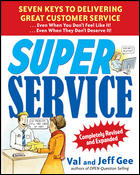Selling in Today’s Retail Environment: Making the Connection

The ability to speak with people because you are interested in them and enjoy the conversation is a skill not readily teachable, and something Tyler looked for when hiring a salesperson for one of his stores.
When exposed to today’s current hiring philosophies, I’m wondering what people could be thinking? In my 27 years of hiring, I can only remember one person leaving.
Résumés meant little to me. Personality was everything. I wanted men and women who loved to be with and were enthusiastic about people. No matter how qualified a person might be if there was a tinge of dullness it was a no go.
I loved finding a person at their job—bank teller, clerk or server—who made me feel at that moment I was the only person on Earth. Employment history meant nothing except that maybe other employers may not have been good enough to retain them. Good people won’t work for bad employers. Credit history meant nothing, heck everyone has a problem now and then and, worse yet, are these wacky personality tests.
The reason I hired in the manner I did was that selling is the art of being liked—nothing more, nothing less. The ability to speak with people because you are interested in them and enjoy the conversation is a skill not readily teachable. People either love others or they don’t.
“Pushy” salespeople are simply salespeople you don’t like. If people like you, they want to speak with you, listen to you and, most of all, trust you.
I’ve written a lot about the deceptive, “Too good to be true” sales ads of Empire Today, Lumber Liquidators and the big boxes. Unfortunately, consumers fall for their phony sales in a big way. When a salesperson gets the inevitable question: “Can you match Home Depot’s prices?” and unless she likes you, she won’t believe your explanation of why your store can provide flooring at the same or better pricing. If she likes you, she’ll hang on every word.
No matter how good you may be at acting as though you like others, it will never work unless you truly do because the phoniness comes shining through. This, as my friend Kelly Kramer teaches, is the essence of becoming the “trusted advisor.”
People buy from people they like even if they aren’t competitive. There are a few simple basics to making a connection with people. First, never talk about yourself unless a specific question is asked. Talk about their interests, never your own. Follow the clues: If they have animals, ask about them. The same with children, ask about them—ages, interests and names.
Kids and dogs. If you don’t love kids and dogs, get out of the business. I can’t tell you the sales I’ve made just because I noticed a dog in her car and asked to see it and because I knew the breed—the sale was now a lock. Knew the breed, you ask? Yes, because knowing how important this is, I studied most of the AKC list of 225 different breeds of dogs. Unlike other professions where what you need to know is narrowly focused—computers, law, accounting, economics, the stock market and other simpler trades, in professional sales, you need to know something about almost everything.
Just as important is empathy. Someone once said, “Never miss an opportunity to commiserate.” Many consumers who have suffered a loss of a loved one shop to help them overcome grief. They want to talk about the event because even their friends and relatives shy away from speaking about these tragedies.
Many consumers have just been informed that they or a loved one has a serious or even fatal disease or may be scheduled for surgery. People want to discuss these events. I remember a man, in his ’60s, thin, bent over and disfigured, who shuffled into my wife’s store with his wife. My response after welcoming them into the store was to look directly at him and ask, “What in God’s name happened to you?” After decades of people ignoring his disabilities, someone actually asked about his condition.
We sat down while his wife shopped and he told me about getting this neuro-muscular disease when he was 17 and was obviously eager to discuss the history of his condition.
Where do you think they bought their flooring?
Selling takes courage, just as it does in day-to-day life to get along with other people. When I discuss this incident with salespeople, many believe this man would be insulted if they spoke to him about it. Many years in the business speaking with and studying customers has taught me about people and, as a result, I can become a better friend for the moment than their long-time friends.
When teaching and speaking to retailers, I actually make fun of the way they run their businesses. While others would believe I am insulting them, this method actually produces laughter because they see themselves as they are.
I had my son and his girlfriend do a skit on stage with her as the customer and he as the typical salesperson saying, “May I help you?” “Did you read about our sale?” “We can get you a better price” and other stupid things salespeople do and say. The audience was rolling in the aisles as they looked at themselves from afar. When I came on the stage, I said, “Hilarious, isn’t it? Well, this is exactly how most of you deal with customers.”
During a feature presentation, the owner of one of the largest merchandising groups thought that I was, in fact, insulting his dealers so much he felt compelled to get on the stage and apologize. He didn’t recognize his dealers loved it. The connection I had with our retailers was the primary reason for my success in the industry.
While product knowledge and some sales techniques are needed, they pale in importance to making an intimate connection with your customer. Sales techniques come off as trying to do something to customers and product knowledge is boring unless specifically asked for.
Next time, we will explore in depth, various sales situations.
Looking for a reprint of this article?
From high-res PDFs to custom plaques, order your copy today!









